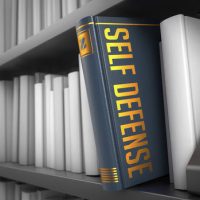4 Important Facts About New York’s Self-Defense Laws

Self-defense laws are meant to protect people who find themselves in dangerous situations. When a person finds themselves in a dangerous situation and fights back, they may find themselves accused of assault or another crime. In such a case, you can fight the charges against you by raising the defense of self-defense. This is an affirmative defense where you justify the use of force. However, before raising the defense of self-defense in a criminal case, it is crucial that you take time to understand if this defense is valid in your case. Otherwise, you might end up wasting valuable time that you could have used to argue another valid defense. Self-defense laws vary from state to state, meaning that the rules that apply in one state do not necessarily apply in another state. Below, we discuss four crucial facts to know about New York’s self-defense laws if you are thinking about using the defense of self-defense.
- Self-Defense Applies to the Protection of Others
The term “self” suggests that self-defense only applies if you are protecting yourself. However, this is not the case. In New York, self-defense laws extend to the defense of others, including family members and friends. Intervening to protect a family member or friend could be grounds for the affirmative defense of self-defense.
- Justification of Physical Force
In New York, there must be justification for you to use physical force while defending yourself or someone else. You are justified to use physical force to protect yourself or others from imminent danger of physical harm. However, even in such a case, the use of force must be proportional to the threat faced. Also, physical force can only be used as the last resort when there is no other reasonable option.
New York law outlines specific circumstances where people may be justified to use physical force. They include the following;
- Kidnapping
- Forcible rape
- Forcible criminal sexual act
- Robbery
- Burglary
This is not to say that the use of physical force is limited to these crimes. An attorney can provide guidance about the defense of self-defense.
- Duty to Retreat
New York has not adopted the stand-your-ground law. In New York, you have a duty to retreat from a dangerous situation before resorting to the use of force. In other words, if you can safely escape from a dangerous situation without needing to fight back, you are required to do so. However, the duty-to-retreat law does not apply when you are in your home. If someone invades your home, you are justified in using force to defend yourself or your property. This exception to the general rule is called the “Castle Doctrine.” With this legal principle, there is no expectation for a person in their home to flee their own residence.
- Initiation of Altercation
One of the most crucial elements when determining if the defense of self-defense is valid is determining who initiated the altercation. If you started a fight or did something to provoke the attacker, you could likely lose the self-defense argument.
Contact an NYC Criminal Defense Attorney
If you are facing criminal charges and believe you were acting in self-defense, our NYC criminal defense attorney, Mark. I. Cohen may be able to help. Contact us today to schedule a consultation and discuss your case.








